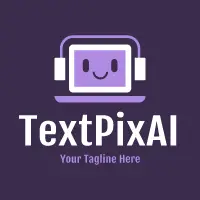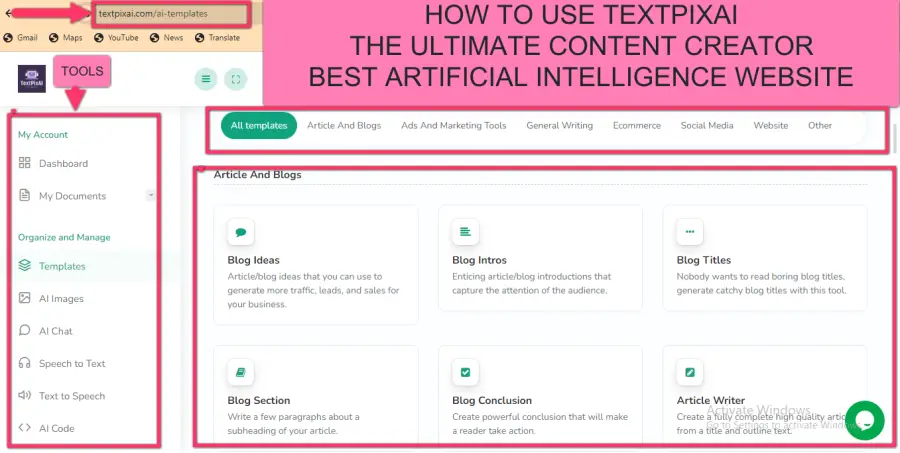NLP and Search Engines
Introduction
The Evolution of Search Engines
Search engines have come a long way since the early days of the internet. What began as basic keyword-based systems has evolved into complex algorithms that can understand and interpret human language. Search engines are the gateway to the vast ocean of information available on the web, and their effectiveness directly impacts how we access knowledge, make decisions, and navigate the digital landscape.
The Role of NLP in Improving Search
In recent years, Natural Language Processing (NLP) has emerged as a game-changer in the world of search engines. NLP, a subfield of artificial intelligence, focuses on enabling machines to understand and generate human language. By applying NLP techniques, search engines can better understand user intent, provide more accurate results, and deliver an overall enhanced search experience.
Overview of the Article's Structure
In this comprehensive guide, we'll explore the fascinating intersection of NLP and search engines. We'll begin by gaining a solid understanding of NLP, its relevance to search, and the fundamental components of search engines. Then, we'll dive deep into the NLP techniques that are transforming search, and we'll examine their impact on the user experience. Real-world applications across various domains will illustrate how NLP-powered search engines are making a difference. Of course, we'll also discuss the challenges and ethical considerations that come with this transformation. Finally, we'll peer into the future and explore the exciting trends that lie ahead.
Understanding NLP and Its Relevance to Search Engines
What Is Natural Language Processing (NLP)?
Natural Language Processing, or NLP, is a subfield of artificial intelligence that focuses on the interaction between computers and human language. At its core, NLP aims to equip machines with the ability to understand, interpret, and generate human language in a way that is both meaningful and contextually relevant.
NLP in the Context of Search
When we think about search engines, we often think in terms of keywords. However, NLP allows search engines to move beyond keywords and understand the nuances of human language. This means that users can now interact with search engines in a more natural, conversational manner.
The Anatomy of Search Engines
To appreciate the impact of NLP on search engines, it's essential to understand how these engines work. Search engines typically go through several stages:
Crawling and Indexing
Search engines use web crawlers to navigate the internet, visiting web pages, and collecting data. This data is then indexed, creating a massive database of web content.
Retrieval and Ranking
When a user enters a query, the search engine retrieves relevant information from its index and ranks the results based on various factors, including relevance and authority.
NLP Techniques Empowering Search Engines
Semantic Understanding
Semantic understanding is at the heart of NLP-powered search. It enables search engines to go beyond matching keywords to understanding the meaning behind a query. Several key NLP techniques contribute to semantic understanding:
Entity Recognition and Linking
Entities are real-world objects or concepts like people, places, or organizations. NLP can identify and link these entities within text, enriching search results with contextual information.
Contextual Understanding
Understanding context is crucial in search. NLP models can analyze the context of a query to provide more relevant results. For example, when you search for "apple," do you mean the fruit or the tech company? NLP helps the search engine figure it out.
Query Expansion
NLP can expand and refine user queries to improve search results. If a user searches for "best budget smartphones," NLP can expand the query to consider synonyms and related terms, ensuring a more comprehensive set of results.
Sentiment Analysis in Search
Sentiment analysis, another NLP technique, plays a significant role in search engines:
Understanding User Intent
Sentiment analysis can determine the emotional tone of a query. This helps search engines understand whether a user is looking for positive or negative information. For example, a query like "iPhone 12 review" might indicate a user's intent to gather positive information, while "iPhone 12 issues" suggests a negative sentiment.
Personalizing Search Results
NLP-powered search engines can use sentiment analysis to personalize results. If a user tends to click on positive reviews, the engine can prioritize positive content in their results, enhancing the user experience.
Multilingual and Cross-Lingual Search
The world is diverse, and so are the languages people use to search for information. NLP bridges language barriers:
Breaking Language Barriers
Multilingual NLP models enable search engines to understand and respond to queries in various languages, making information accessible to a global audience.
Expanding Global Reach
For businesses and content creators, multilingual search means the opportunity to reach a broader audience. Users can find content in their preferred language, leading to increased engagement and user satisfaction.
The Impact of NLP on Search User Experience
Voice Search and Conversational Search
Voice-activated assistants like Siri, Alexa, and Google Assistant have become integral parts of our lives:
The Rise of Voice-Activated Assistants
NLP is at the core of these voice-activated assistants. They understand and respond to spoken language, making tasks like setting reminders, checking the weather, or finding information as simple as having a conversation.
Conversational Queries and Responses
Conversational search goes beyond traditional keyword queries. Users can ask questions in a natural, conversational manner, and search engines can provide contextually relevant answers. This is particularly valuable for mobile and hands-free search.
Enhanced Search Recommendations
NLP-powered recommendation systems are transforming how we discover content:
Personalized Content Recommendations
Search engines use NLP to understand user preferences and behaviors. By analyzing past interactions, they can recommend articles, products, videos, and more that align with a user's interests.
Improved User Engagement
Personalization leads to higher user engagement. When users find content that resonates with them, they're more likely to stay on a website, explore further, and return for future searches.
Natural Language Query Understanding
NLP is gradually shifting search from keyword-based queries to natural language:
The Shift from Keywords to Intent
Users no longer need to distill their thoughts into keywords. They can express their intent naturally. For example, instead of typing "weather forecast," a user can ask, "What's the weather like today?"
More Precise Search Queries
NLP understands context and can disambiguate queries. It knows that "apple" can refer to a fruit or a company, so it asks clarifying questions or provides results for both possibilities.
Real-World Applications
E-commerce Search
E-commerce platforms are leveraging NLP for more efficient and personalized shopping experiences:
Product Search and Recommendations
NLP helps users find products more easily. It understands specific product attributes and user preferences, resulting in highly relevant search results.
Improving Conversion Rates
When users find what they're looking for quickly, conversion rates increase. NLP-driven search engines contribute to a seamless shopping journey.
Information Retrieval
NLP is invaluable in academic and professional contexts:
Academic Research and Literature Search
Researchers can use NLP to search vast databases of academic papers, making it easier to find relevant research and stay up to date with the latest publications.
Efficient Access to Information
Professionals can use NLP-powered search engines to quickly retrieve information from large document repositories, saving time and improving decision-making.
Local Search and Navigation
NLP enhances the way we find businesses and navigate our surroundings:
Finding Businesses and Services
Local search engines use NLP to understand user queries like "Italian restaurants near me" and provide accurate results, complete with reviews and ratings.
Navigating Complex Urban Environments
NLP can be integrated into navigation apps to provide real-time information and directions based on natural language queries. This is especially valuable in densely populated urban areas.
Enterprise Search
Organizations benefit from NLP-powered search within their internal knowledge management systems:
Knowledge Management and Document Retrieval
NLP can analyze and categorize vast amounts of internal documents, making it easier for employees to access the information they need.
Enhancing Workplace Productivity
Efficient access to internal knowledge resources boosts workplace productivity, as employees spend less time searching for information.
Challenges and Ethical Considerations
Privacy and User Data
Protecting user data is a top priority:
Handling Customer Data
Search engines must adhere to strict data privacy regulations and guidelines when collecting, storing, and analyzing user data.
GDPR Compliance
For businesses operating in the European Union, compliance with the General Data Protection Regulation (GDPR) is essential. GDPR outlines stringent requirements for data protection and transparency.
Bias in Search Results
Algorithmic bias is a critical concern:
Mitigating Algorithmic Bias
Search engines must actively monitor and mitigate bias in their algorithms to ensure that results are fair and unbiased.
Ensuring Fairness in Search
Transparency in search algorithms is vital. Users should know how search results are generated and why certain content is prioritized.
User Expectations and Transparency
Managing user expectations is essential:
Educating Users on Search Capabilities
Search engines should communicate their capabilities clearly to users. This helps manage user satisfaction and prevent frustration.
Managing User Trust
Transparency in how search engines operate fosters trust. Users are more likely to continue using a service they trust.
Future Trends in NLP and Search Engines
Visual Search and Image Recognition
Visual search is on the horizon:
Searching the Visual Web
NLP combined with image recognition technologies will enable users to search for information within images and videos, revolutionizing visual search.
Augmented Reality Integration
Augmented Reality (AR) and NLP will work together to provide users with real-time information and visual cues in the physical world, enhancing the way we interact with our environment.
Augmented Intelligence in Search
Combining AI and human expertise:
Advanced Decision Support
Search engines will become advanced decision support tools, helping users make informed choices in areas like healthcare, finance, and education.
Combining AI and Human Expertise
AI-driven search engines will work in tandem with human experts, offering the best of both worlds—automation and human insight.
Predictive Search
Anticipating user needs:
Anticipating User Needs
Search engines will use predictive analytics and NLP to anticipate user queries and provide information before users even ask for it.
Proactive Information Delivery
Information will be delivered proactively, ensuring that users stay informed and up to date without actively searching.
Conclusion
The Ongoing Transformation of Search
The world of search engines is in a state of constant evolution. From simple keyword matching to the complex semantic understanding powered by NLP, search has come a long way.
Leveraging NLP for Enhanced Search Experiences
NLP is at the forefront of this transformation, enabling search engines to deliver more relevant results, personalized recommendations, and a natural language interface.
Embracing the Future of Search
As we look ahead, the future of search promises even more exciting developments, from visual and augmented reality search to predictive and proactive information delivery. The synergy between NLP and search engines continues to shape the way we access knowledge, make decisions, and explore the digital world.
For further reading on NLP and related topics, be sure to check out this blog article from TextPixAI:
References
- Manning, C. D., Raghavan, P., & Schütze, H. (2008). Introduction to information retrieval. Cambridge University Press.
- Liu, B. (2012). Sentiment analysis and opinion mining. Synthesis Lectures on Human Language Technologies, 5(1), 1-167.
- Bird, S., Klein, E., & Loper, E. (2009). Natural language processing with Python. O'Reilly Media.
- Vaswani, A., Shazeer, N., Parmar, N., Uszkoreit, J., Jones, L., Gomez, A. N., ... & Polosukhin, I. (2017). Attention is all you need. Advances in neural information processing systems, 30.
- Google AI - Natural Language Processing
- Microsoft AI - NLP and Search
- The Association for Computational Linguistics (ACL) - The premier international organization in the field of NLP and computational linguistics.







